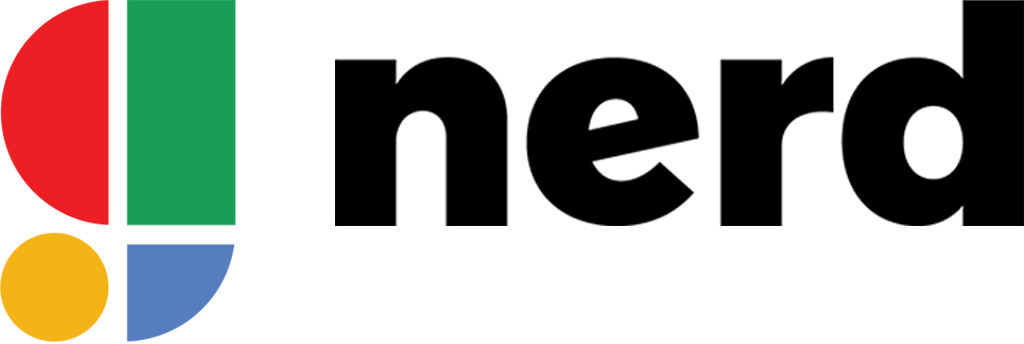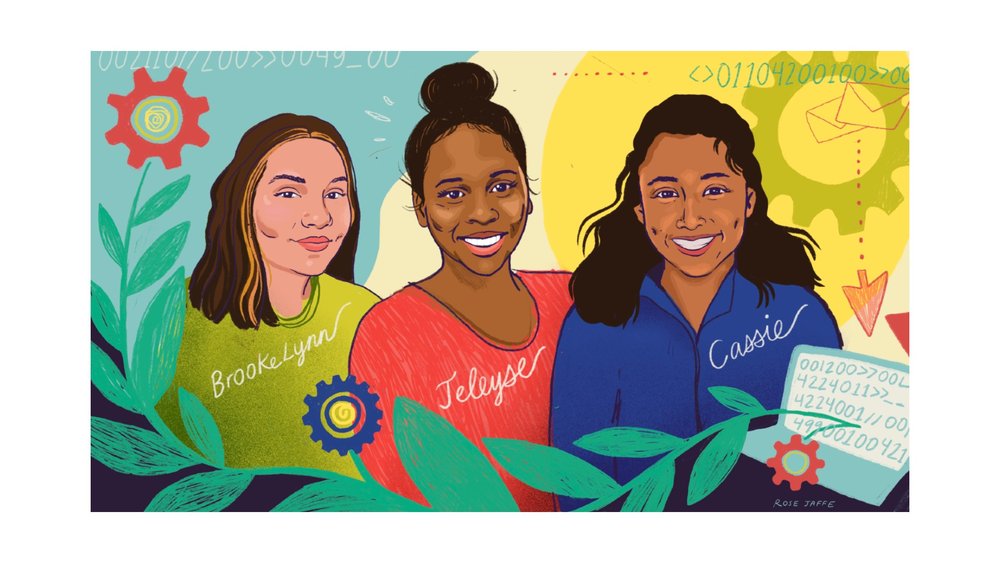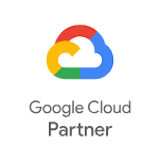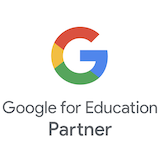When Cassie Areff was a child, she enjoyed spending time coding with her father. “I liked making minigames in Scratch, and then I moved on to programming my computer to play card games against me.” Fast forward to today, Cassie is part of a cohort of students who just completed Google’s Code Next, a free computer science education program for high school students of color and Latinos.
We recently took some time to speak with Cassie, as well as two other engineering students, Jelyse Williams and BrookeLynn Acevedo, to learn more about their experiences as programmers and their plans for the future.
What does it feel like to be a young woman in coding?
BrookeLynn: It’s both isolating and empowering. It can be discouraging to look around and see that you are one of the only women, or the only woman, in the room. As you gain more experience, the number of women around you decreases. But it’s also something I’m proud of. I’m helping to close the gender gap in coding and showing others that I’m not afraid to learn, and I hope other women are inspired to do the same.
Jelyse: Knowing that there are so few young women in code inspires me to try to get more young women interested. From every shortcut to every <br> (coded line break), knowing how to code is a fundamental skill. If more young women start coding, more diverse ideas and tools will come forward to serve us well.
What advice would you give to young women of color who are interested in coding careers?
BrookeLynn: Don’t hesitate to apply for things you’re interested in, even if you have no experience or feel like you have “no chance.” There are so many wonderful opportunities with STEM that I missed out on because I was afraid to apply.
I wasn’t going to apply to Code Next because I thought I wasn’t qualified. Look at me now! Applying is scary, especially when you’re in the minority, but you just have to go out and try.
Cassie: If you’re thinking about Code Next, join us! It’s an amazing opportunity to meet other students interested in computer science in a supportive environment and learn things not typically taught in high school classes. Coaches and mentors are also amazing resources.
Also, never let imposter syndrome stop you from pursuing something. Don’t underestimate your abilities! Take risks that help you learn and grow. Find a supportive community in your classes and organizations. Finally, accept your mistakes and failures because they allow you to improve and push you to better understand the concepts you are exploring.
Jelyse: Never give up. In this predominantly white and male field, we are necessary. Representation is important, but what you do in this field is even more important. Go change the world your way, for the better!
What are you most proud of?
Jelyse: That I never given up. When I started Code Next, I was really bad at code. It seemed like everyone around me was excelling, and I wasn’t. At first, I didn’t know how to express my dilemmas, but my coaches helped me figure out how to ask for help and understand that we all learn at different rates.
BrookeLynn: I had never taken a “real” coding class before and had virtually no prior experience in coding or tech careers. There were several times where I had problems with Code Next and the material provided, but I fought through it and not only did the job, but I did it and understood it. That perseverance fills me with pride.
What motivates you? What excites you?
Cassie: I am always excited to learn and solve problems. I love discussing ideas with others and synthesizing ideas to create solutions. I enjoy doing puzzles and see code as an outlet to use logic to creatively solve problems.
BrookeLynn: My future is what excites and motivates me. There is nothing more valuable than the present, so I try to preserve it by also thinking about the future. I am working very hard now so that I can build a bright future and be able to repay all those who have shown me kindness.
Jelyse: I want to inspire people to make things better. Working towards this goal, and hopefully inspiring others to do the same, excites me.
Code Next lit a fire within these young women and helped them improve their coding skills while providing them with a supportive community. Applications to be part of the next Code Next cohort are now open to any student entering grades 9-12 in the United States. To learn more and apply, visit Code Next.
By Leah Drapkin. See the original article here.



